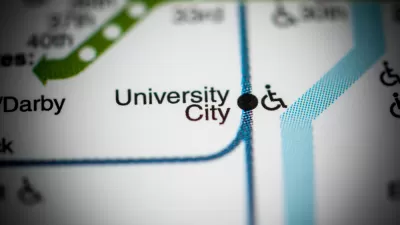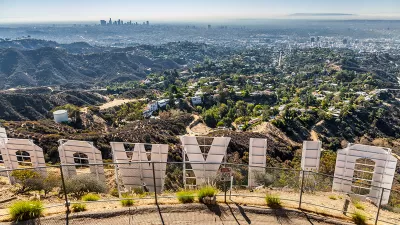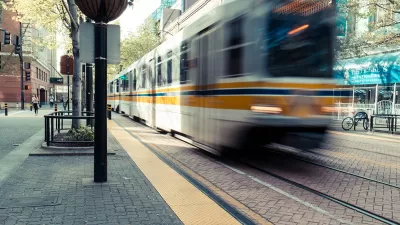As Virginia drafts new rules to govern the sale of naming rights to its highways, interchanges, and bridges, public officials want to ensure that their new "marketing technology" provides more than just a sign on the road, reports Liz Essley.
In drafting the rules for Gov. Bob McDonnell's initiative seeking to raise money for transportation projects by selling naming rights to Virginia's public infrastructure, state officials are making sure private companies get their money's worth. According to Essley, "Virginia Secretary of Transportation Sean
Connaughton is pushing to make sure that when a company like Burger King
pays to name a road, the company's name will also pop up in front of
potential customers on smartphone directional apps and Internet maps."
Speaking recently in front of the Commonwealth Transportation Board, Connaughton argued that, "The real value in naming rights isn't solely a name or a sign on a major thoroughfare. It's the thousands of
people who look through the Web and through smart apps. They may never
drive on that specific piece of highway but still can be touched by this
marketing technology."
Estimated to generate $273 million over 20 years, critics are incensed by the high vulgarity, and low economic benefit, of the plan.
"It tell us about the sad state of
transportation that we have to use gimmicks like this," said AAA
Mid-Atlantic's John Townsend. "The highway belongs to the public, and
we're building these highways with the taxpayers' money."
FULL STORY: Virginia drafting rules for highway naming

Manufactured Crisis: Losing the Nation’s Largest Source of Unsubsidized Affordable Housing
Manufactured housing communities have long been an affordable housing option for millions of people living in the U.S., but that affordability is disappearing rapidly. How did we get here?

Americans May Be Stuck — But Why?
Americans are moving a lot less than they once did, and that is a problem. While Yoni Applebaum, in his highly-publicized article Stuck, gets the reasons badly wrong, it's still important to ask: why are we moving so much less than before?

Using Old Oil and Gas Wells for Green Energy Storage
Penn State researchers have found that repurposing abandoned oil and gas wells for geothermal-assisted compressed-air energy storage can boost efficiency, reduce environmental risks, and support clean energy and job transitions.

Greening Oakland’s School Grounds
With help from community partners like the Trust for Public Land, Oakland Unified School District is turning barren, asphalt-covered schoolyards into vibrant, green spaces that support outdoor learning, play, and student well-being.

California Governor Suspends CEQA Reviews for Utilities in Fire Areas
Utility restoration efforts in areas affected by the January wildfires in Los Angeles will be exempt from environmental regulations to speed up the rebuilding of essential infrastructure.

Native American Communities Prepare to Lead on Environmental Stewardship
In the face of federal threats to public lands and conservation efforts, indigenous groups continue to model nature-centered conservation efforts.
Urban Design for Planners 1: Software Tools
This six-course series explores essential urban design concepts using open source software and equips planners with the tools they need to participate fully in the urban design process.
Planning for Universal Design
Learn the tools for implementing Universal Design in planning regulations.
Heyer Gruel & Associates PA
City of Moreno Valley
Institute for Housing and Urban Development Studies (IHS)
City of Grandview
Harvard GSD Executive Education
Salt Lake City
NYU Wagner Graduate School of Public Service
City of Cambridge, Maryland





























